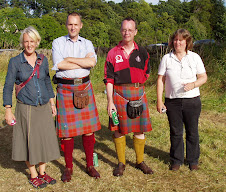Greece
After I launched yesterday's post upon
the world, I read the Telegraph and discovered, to my chagrin, that
Ambrose Evans-Pritchard was writing about Ochi Day in the business
section. This from Helen, still on Mt Pelion:
Yes,
I am glad you and Ambrose Pritchard made the Oxi day point. It's a
very important one which I have been feeling frustrated that none of
the commentators had made until now. We had a really interesting
conversation with the village carpenter yesterday who is voting yes
and says most of the village is too but the reason, according to him,
is that they have been getting handouts from the EU and playing the
system - claiming ten acres of spoilt apples in frost, for example,
when they only have one. He was very vociferous on the subject saying
that all the fields down by the sea used to be cultivated but now
they're left fallow and the young people don't want to farm any more.
They'd rather sit in the cafes on their phones, taking money from
their parents and grand parents pensions. It was an interesting
perspective. Meanwhile, most businesses including tavernas have shut
down for the week and the roads are empty.
She also sent these
pictures, Life in Greece:
Archie on the right, one of
his brothers on the left. Mungo?
This is her husband David,
talking to a lawyer friend in London about the crisis:
I'm not going to look this
up, but yes, Mary Lou, “yes” in Greek is “nai”. There's the
“n” sound, which is lacking in the negative. I don't know
whether that's an ancient word or not. But that negative upward
movement of the head, accompanied by a little tsk sound, so easily
confused with a nod of assent, goes right back to the beginning –
“anavuo” in Homer, to nod upwards, is said, I believe, of Zeus
himself, refusing permission for something.
Becky, I think
I'm right – but again, I'm not going to look it up – in saying
that Finnish isn't an Indo-European language. Like Turkish. Are they
related to each other, or is it just that both fall outside the
Indo-European family?
Tennis
Yesterday
was brilliant. Brown-Nadal was undoubtedly the
match of the first week, maybe of the tournament. I got to see every
moment of it, and rejoiced in the result, never having been a Nadal
fan. Perdita slept through the whole thing.
And
the lozenges are finished. Do I have enough yarn for ten more rows,
plus a bind-off, over 423 stitches, increasing to 443? I'll take Kate
Davies' word for the totals. I know I'm right, counting lozenge by
lozenge.
Watch
this space.







Finnish is generally considered not to be Indo-European. It is related to Hungarian by the way.
ReplyDeleteI had a look in my files at some of the more obscure Indo-European languages I have had to work with from time to time and "n" seems to occur in all of them.
Jean - just a gentle heads up - I cast off my Fantoosh a couple of days ago, as loosely as I know how, but there is NO WAY mine will stretch to the dimensions in the instructions. I think I will have to take out the last few rows and consider that 'yarn over between each stitch' that works for sock tops - just sayin' .......
ReplyDeleteYour recollection of ancient Greek is correct. I have Cunliffe’s Homeric Greek Lexicon next to me desk and checked for you (which is safer than relying on my own memory, always!). “Ananeuw” is to move the head up to deny a request. “Nai” is an affirmative particle (paired with “dh” - that is delta-eta). So both of these bits of Greek have ancient pedigrees.
ReplyDeletecheers,
CKP
Good to know that my confusion about no and yes and their accompanying head gestures is rooted in myth. I love that kind of information, which is often found on this blog. Plus knitting.
ReplyDeleteFinnish is not Indo-European. Neither is Korean but the word for "yes" is the same in Korean and Greek. Weird coincidence.
ReplyDeleteWishing you a speedy recovery.
ReplyDelete